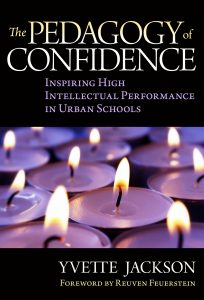Too often, minority students are shut out.
Article by Kelly Burch for Bright
I was enthralled when I heard Yvette Jackson speak this summer at a conference on Mindfulness in Education in Rhinebeck, New York. All weekend the conference had focused on social justice in the classroom, and at times the problems seemed insurmountable. But when Jackson took the stage she had a simple yet surprising answer: gifted education should be taught to all students. To bolster her argument, she cited neuroscience and told personal anecdotes from the classroom.
But as she laid out her case I felt as if I were missing something. Why is it revolutionary to let all kids learn through a variety of experiences, like books, games, experiments and field trips?
Instead of focusing on the areas that kids struggle with, Jackson believes teachers should first build up children’s confidence by focusing on the academic areas where the students are strongest.
Teachers capture kids’ attention by allowing them to succeed. Then, when self-belief takes hold, students will have the gumption to tackle tasks that are more challenging.
To me, this seems obvious.
“It’s because you’re coming from the frame of reference of a parent, or just anybody who understands that this is how they learn best,” Jackson told me. “Enrichment nurtures the brain. We’ve known that even from studying rats. But when you go over into the education culture, which has stifled that kind of thinking,” the focus is on students’ weaknesses, not what they’re good at.
This approach grew out of a well-intentioned federal funding plan, Title I, that was meant to help disenfranchised students. Instead, Title I had unexpected consequences that the education system still grapples with more than 50 years later.

